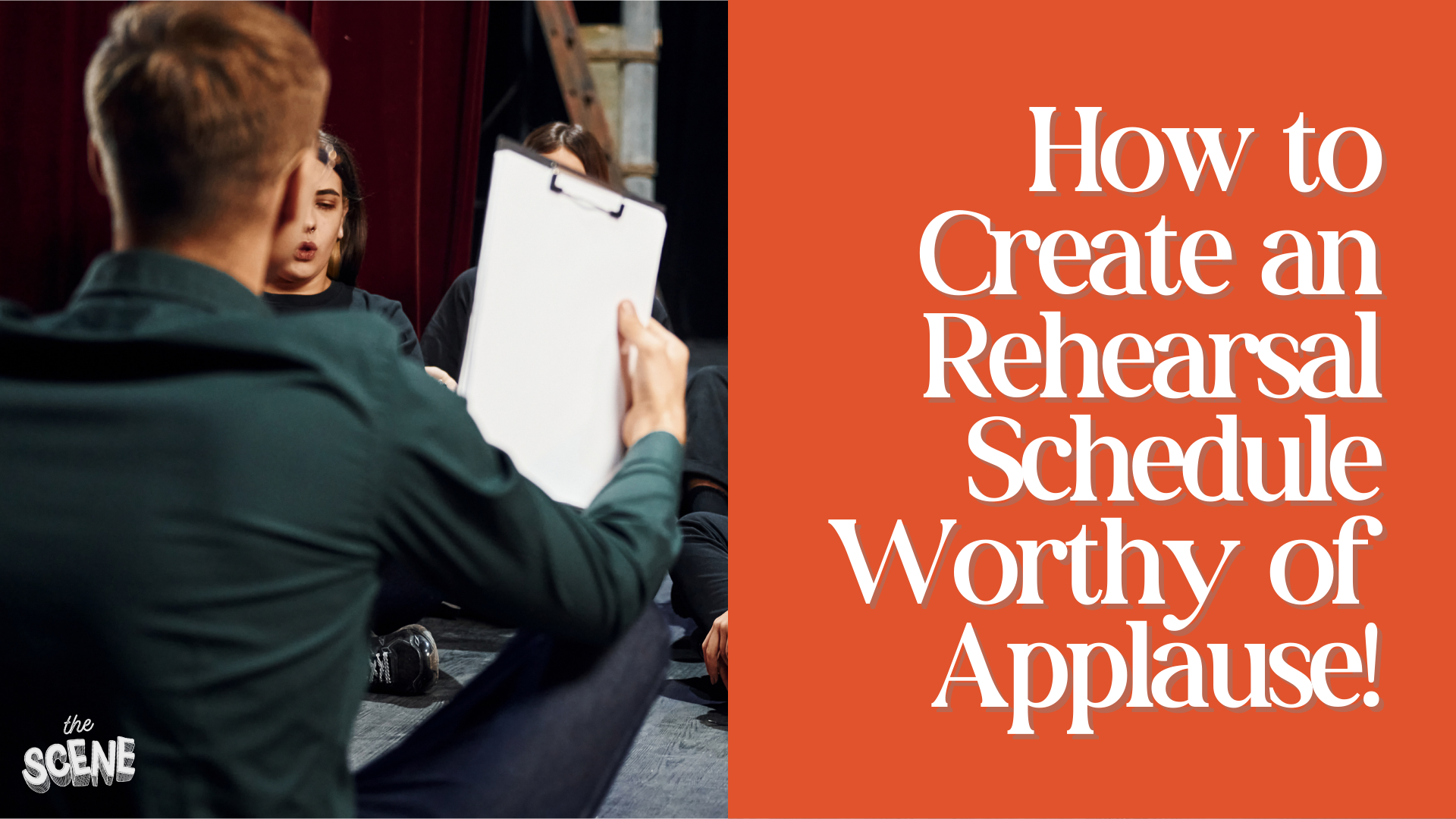by Zach Dulli, The Scene
The backbone of any successful theatre production isn’t just the talent on stage or the story in the script; it’s the art and science of a solid rehearsal schedule. Without a well-crafted plan, your aspiring performers might end up improvising more than they should. Here’s a guide to help educational theater directors strike the right balance between structure and spontaneity to ensure that your cast and crew are ready to shine when the lights go up.
Start with the End in Mind
Before you even think about scheduling that first table read, you must know your final destination. When’s the show date? How many performances are you planning? Pencil those in first because everything will work backward from that point. Give yourself at least two weeks of buffer time before the opening night. That’s your safety net—your cushion for unexpected snow days, expected holidays, or everyone catching a cold. You aim to have the show ready for a dress rehearsal about a week before opening. This gives you ample time to iron out the kinks and make necessary last-minute adjustments.
Map Out Milestones
Treat your rehearsal schedule like a road trip. If your destination is a flawless opening night, then key milestones are your rest stops. These include dates like the first run-through, off-book day (when actors should have their lines memorized), and tech rehearsals. Create a detailed calendar that highlights these essential markers. Share it with your cast and crew early on so everyone knows what’s expected of them and by when. This transparency sets clear goals, helps build a sense of collective responsibility, and will allow students to develop a stronger sense of ownership over the production.
Divide and Conquer
Theater productions are like jigsaw puzzles; different scenes and characters fit together to create the whole picture. So, don’t be afraid to break your cast into smaller groups for targeted rehearsals. Instead of having everyone on stage every night, focus on specific scenes or character interactions. This allows you to hone in on the details and gives actors a chance to work on their parts without the pressure of the full ensemble. Plus, nothing makes a teenager happier than an unexpected night off.
Prioritize Consistency Over Length
Long rehearsals might seem like the solution to perfecting a production, but shorter, consistent rehearsals are often more productive in the high school theater world. Aim for sessions that last two to three hours. This keeps energy levels high and minds focused. Consistent, shorter rehearsals help keep the momentum going without burning out your actors or backstage crew.
Tech Week: The Super Bowl of Rehearsals
Tech Week is where everything comes together. This is your make-or-break week, and it deserves special attention. Plan for more extended rehearsals during this time, but keep them as efficient as possible. Run through the entire play at least twice with full tech. Consider having a dedicated “cue-to-cue” rehearsal, where you jump from one technical cue to the next, ensuring flawless light changes, sound effects, and scene transitions. This might seem tedious, but the payoff is a seamless performance that wows the audience.
Keep Communication Open
Theater is a collaborative art, and communication is key to collaboration. Hold regular check-ins with your cast and crew. Get feedback on what’s working and what’s not. Are scenes flowing as they should? Are actors struggling with their lines or blocking? Create a space where they feel comfortable voicing their concerns. And remember, adjustments are part of the process. Flexibility doesn’t mean a lack of planning; it means being able to adapt your schedule to meet the needs of your production.
Foster a Positive Rehearsal Environment
No matter how tight your schedule is, the environment you create is crucial. Rehearsals should be a safe space where students can take creative risks, make mistakes, and learn from them. Celebrate the small victories along the way—a scene finally clicking into place or the stage crew nailing that challenging set change. A little praise can go a long way in building confidence and camaraderie. Remember, your role isn’t just to direct; it’s to inspire. Your enthusiasm sets the tone for the entire cast.
Plan for the Unexpected
Theater is an unpredictable beast. Props break, set pieces don’t fit, and actors get sick. Build some flexibility into your schedule to account for these inevitable hiccups. Have contingency plans, and keep a cool head when things go off-script. Your reaction sets the stage for how others will respond. A director who remains calm under pressure encourages a cast and crew to do the same.
By mastering the fine art of scheduling, you’re not just directing a play—you’re shaping an unforgettable experience for your students. The thrill of the opening night, the applause, the shared sense of achievement—it all starts with a solid plan. So, roll up your sleeves, grab that clipboard, and let the rehearsals begin.









